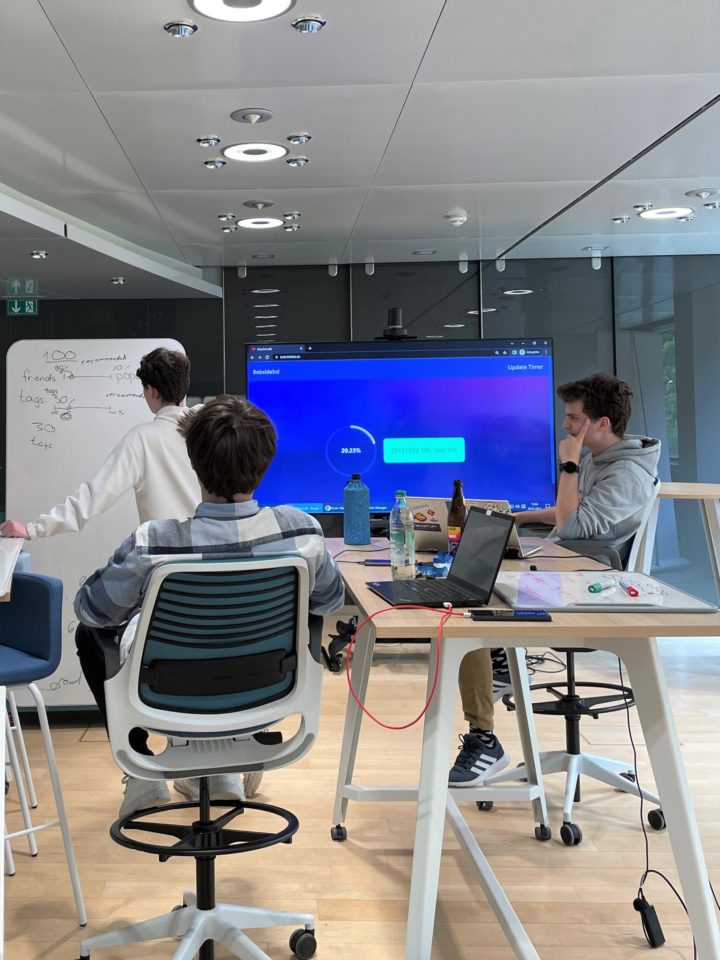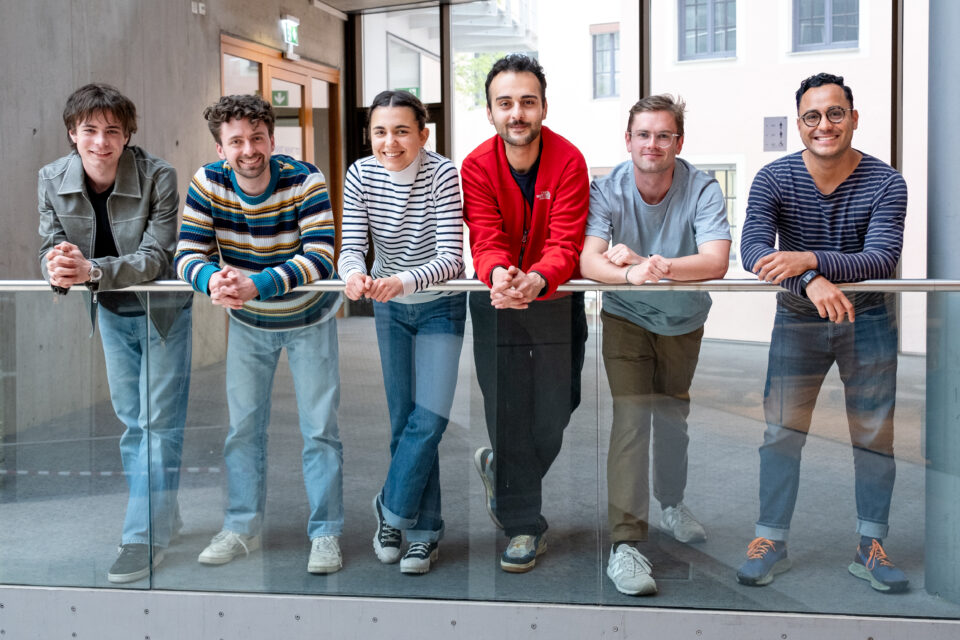TUM Think Tank
Where today's societal challenges meet tomorrow's technological excellence.
At the TUM Science Hackathon 2023, a team of computer science students took on the challenge of developing a social media platform that provides users with enhanced transparency and control over the content shown in their feed. They discussed what kind of information users need to better understand how content is personalized on social media and drew up ways for users to modify the content shown to them. Based on these ideas, they designed their prototype ‘openLYKE’ – a social media platform which implements additional features for users to tweak the underlying recommendation algorithm.

From May 19 to 21, the TUM: Junge Akademie hosted the TUM Science Hackathon 2023 on trustworthy systems. In nine challenges submitted by partners from TUM and external organizations, students from various disciplines joined forces to develop technologies that are safe, reliable, transparent and deserve users’ trust. The challenges tackled a variety of problems ranging from spacecrafts and crash detection to material science and AI ethics. One of the challenges was submitted by the REMODE project of the Professorship of Law, Science and Technology in the context of the Reboot Social Media Lab of the TUM Think Tank. In their challenge titled “Trustworthy Recommender Systems”, students were asked to develop a prototype of a social media platform with enhanced options for users to control their social media experience by modifying the content shown to them. Building on the new requirements for online platforms laid down in the EU Digital Services Act (2022), the challenge aimed for recommender systems that enable users to better understand and manipulate the main parameters used to personalize content online.
Especially, opaque algorithms and misleading design patterns (dark patterns) were supposed to be avoided. Thereby, the challenge sought to promote trust-by-design and facilitate more responsible recommender systems on social media.
A key takeaway from the Science Hack was the importance of keeping the technical feasibility in mind when developing innovative solutions and features for social media services. While working on their prototype, the students continuously reflected on how their ideas could be implemented into their recommendation algorithm: What kind of data about each post would be needed? How could users’ preferences be translated into algorithmic language? By staying close to the technology, the students managed to successfully design not only the front end (user interface) of their prototype but also the underlying back end (software) for processing data and recommending content.
The challenge “Trustworthy Recommender Systems” was posed by the REMODE project team consisting of Prof. Christian Djeffal (principal investigator), Daan Herpers (research associate) and Lisa Mette (student assistant), who also supervised the student team during the hackathon.
Thank you to the openLYKE team (Adrian Averwald, Finn Dröge, Thomas Florian, Tim Knothe) for participating and the Junge Akademie for organizing the TUM Science Hack 2023.
TL;DR
At the TUM Science Hackathon 2023, a team of computer science students took on the challenge of developing a social media platform that provides users with enhanced transparency and control over the content shown in their feed. They discussed what kind of information users need to better understand how content is personalized on social media and drew up ways for users to modify the content shown to them. Based on these ideas, they designed their prototype ‘openLYKE’ – a social media platform which implements additional features for users to tweak the underlying recommendation algorithm.









